What Do House Edge and RTP Mean For Games At Real Money Online Casinos?
You may have seen the abbreviation RTP if you're new to online casinos. You may have also seen the term 'house edge', which is the casino's advantage over the player in a specific game, expressed as a percentage.
In a game with a house edge of 6%, the casino can expect to win $6 on every $100 wagered in the long run. RTP stands for 'Return To Player' and is the opposite of a casino game house edge. That same game with a 6% house edge has an RTP of 94%, returning $94 of every $100 wagered long-term.
Understanding how these percentages work can help you assess the risk and reward potential of the various games available at online and in-person casinos.
Let's take a closer look at what these terms mean, and why they're important.
🏆 Our Top Recommended Real Money Online Casinos For House Edge & RTP
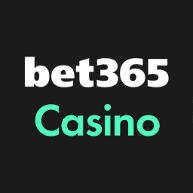
- Wide Range of Casino Games
- Generous Free Spins Welcome Bonus
- No Wagering Requirements

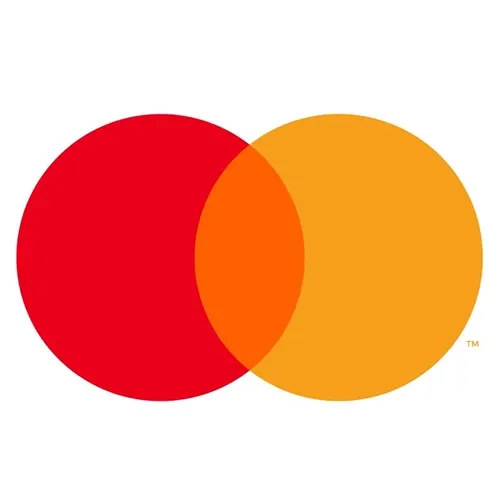








Promo Code
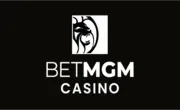
- Multiple No Deposit Bonuses
- Lucrative Progressive Jackpots
- Fast Payout Speeds











Promo Code
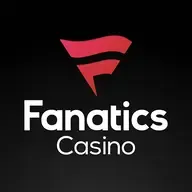
- Multiple Welcome Bonuses
- Fanatics Exclusives
- Optimized Mobile Play






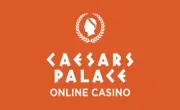
- Exceptional Rewards Program
- Several Live Casino Games
- Intuitive Casino App












Promo Code

- Good Selection of Casino Games
- Solid Welcome Offer
- High Quality Mobile App

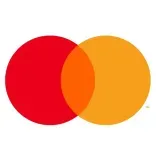





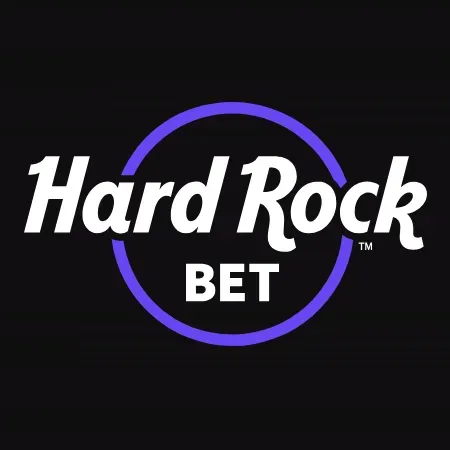
- 3,500+ Casino Games
- No Deposit Bonus & Deposit Match
- Exceptional Rewards Program
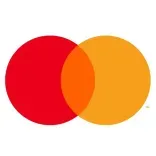










- 1000+ Casino Games Available
- Generous Welcome Offer
- Fast Payouts






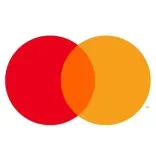
Promo Code

- 2,000+ Casino Games
- 100% Deposit Match Bonus
- Access to BetMGM Rewards











Promo Code
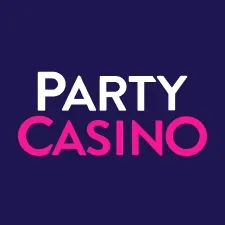
- Slots, Table Games, Live Dealer
- Many Exclusive Games
- Welcome Bonus & Ongoing Promos












Promo Code

- 3,000+ Casino Games
- Great Loyalty Program
- Comprehensive Sportsbook Integrated











- Impressive Table Game Selection
- Many Bonuses Available
- Earn Caesars Rewards











Promo Code

- 100% Deposit Match + Free Spins Bonus
- Large Variety of Online Slots
- Dedicated Mobile Apps








💡 Understanding House Edge and RTP
All casino games are designed with a house advantage to ensure that they are profitable for the casino. The casino business relies on every game maintaining a long-term edge for the house in terms of profitability. Short-term luck influences whether gamblers win or lose in a single session, but with thousands of hands in a table game or spins on a roulette wheel, the rules of the games and the odds offered guarantee that the casino will come out on top.
Gamblers can not overcome the house edge in the long run but can use their knowledge to their advantage. Choosing a game with a lower house edge and avoiding side bets offering bad value are strategies a bettor can use to improve their winning chances. Consider these five popular casino games that all have fairly low house edges:
- Video Poker (As low as 0.5%, depending on variation)
- Blackjack (As low as 0.5%)
- Baccarat (As low as 1.06%)
- Craps (1.41%)
- Pai Gow Poker (As low as 1.6%)
➡️ RTP (Return To Player) vs. House Edge
If an online slot offers an RTP of 95%, the house edge is 5%. It's that simple. You'll need to use strategies for most online casino games. For that reason, RTP is most commonly applied to slots. The RTP comes from testing the game's software. Hundreds of thousands of spins — or even millions — determine the slot's RTP. These percentages vary depending on free spins, casino bonuses, progressive jackpots, and bet amounts. Understanding these numbers is essential. That way, you can pick a slot with the lowest house edge and highest RTP. From there, you can also develop betting strategies for other online casino games.
A game's house edge on a wager is calculated by comparing the payout odds on a winning outcome to the true roulette odds of that outcome occurring. This is easy in a game like double-zero American Roulette, which always has a flat house edge of 5.26%. An American roulette wheel has 36 numbers 1-36, a single zero, and a double zero.
There are 18 odd numbers and 18 even numbers between 1 and 36. "Odd" or "Even" both have a payout of 1:1, or even money, which would be the true odds of occurrence if not for the zeroes. 36 of every 38 spins will land on a number between 1 and 36 and pay out these Odd/Even wagers. But 2 out of every 38 spins, the ball on the roulette wheel will land on zero or double zero, and all bets on "Odd" and "Even" will lose.
That 2 out of 38 occurs 5.26% of the time (2 divided by 38) and represents the casino edge in roulette. The same edge applies to bets like inside numbers, which pay 35:1 but have actual odds of 37:1 because of those zeroes.
The house edge is not flat in all games. In blackjack, the house advantage is variable due to several factors, including the payouts and rules offered by the casino and the strategies used by the players. For example, the house edge is higher when blackjack pays 6:5 instead of 3:2 or when the dealer hits on soft 17 instead of standing. Payouts and house edges for various bets available in a table game can vary greatly.
⚠️ What RTP (Return to Player) Means for You
When you compare a game's RTP to its house edge, you see the same information, but from the player's perspective instead of the casino's. Whereas the house edge represents the percentage of every dollar wagered that the casino will win in the long run, the RTP is the percentage of every dollar returned to the player. Here's a comparison between the RTPs and the house edges of the casino games highlighted in the previous section.
| 🎲 Game | 🤵 House Edge | 🔃 RTP |
| ➡️ Video Poker | As low as 0.5% | Up to 99.5% |
| ➡️ Blackjack | As low as 0.5% | Up to 99.5% |
| ➡️ Baccarat | As low as 1.06% | Up to 98.94% |
| ➡️ Pai Gow Poker | As low as 1.6% | Up to 98.4% |
| ➡️ Craps | As low as 1.41% | Up to 98.59% |
Once you understand that these numbers deliver the same information, you can use whichever numerical value you prefer to compare the difference in long-term betting value between games.
🎰 RTP at Online Slots: Random Number Generator (RNG)
Online slots offer anywhere from 85% - 99% RTP. Most of them show their RTP under the game's information tab. The software developer uses words like "average" or "theoretical." There's no guarantee that those payout percentages represent exact figures. That's because they use a random number generator (aka an 'RNG') in their programming. An RNG is the basis of a slot's RTP. This is how slot machines stay fair for players. Each spin offers the same chances for a "hit" or a loss.
Legal online casinos are audited by corresponding gaming authorities depending on their jurisdiction. That's the whole point of regulating this industry — to keep things fair and legal for customers. Online casinos don't share the same overhead costs as their brick-and-mortar counterparts. For that reason, they offer slots with an RTP of greater than 95% and hundreds of games with varying degrees of RTP and volatility.
🤔 What Is Volatility?
To keep it simple, the volatility of an online slot represents payouts for each spin. Games with lower volatility hit more often. But the payouts are smaller. There are games with medium volatility, too. They offer a balance between low and high volatility. High volatility slots pay out less frequently. But they offer better chances for big wins and jackpots.
Some games show their volatility under their information or rules tab. You can also search online for any slot game's RTP — and you may find the volatility.
👉 Choosing an Online Slot Game
It comes down to your bankroll and personal preference when choosing an online slot game. If you're starting small, you might want to go with a game with low volatility. For gamblers with money to burn, high volatility slots may be your best option. Some games boost their RTP for max bets.
Again, this is all in theory. You can get the gist of how certain games function by testing them out in demo or free play. See which games work best for your bankroll and betting style. You can better understand a slot's RTP by tracking your spins. Remember how often you hit — and adjust your bet amounts accordingly. Keep an eye on the jackpots, too. You never know — you might be lucky enough to win!
Here are some online slots with the highest RTP:
- Mega Joker (NetEnt): 85.25% - 99.00%
- Steam Tower 98 (NetEnt): 98.02%
- Gonzo's Quest Megaways (Red Tiger): 98%
- White Rabbit Megaways (Big Time Gaming): 97.24% - 97.77%
- Bloodsuckers (NetEnt): 96.94%
🪙 House Edges for Different Casino Games
Many in-person and online casino games have a wide range of bet types available. Card games with a low house edge typically offer bonus bets that bring in money at a higher rate than the base game. This section analyzes the house edge on slots and popular table games played in casinos worldwide.
❤️ House Edge for Baccarat
Baccarat is a card game in which every hand is dealt out automatically, and no action is needed from players after they place their bets. Players can bet on the Banker, Player, or a Tie, which each has the following house edges:
- Banker Bet: 1.06%
- Player Bet: 1.24%
- Tie Bet: 14.36%
After the first two cards are dealt, if neither the Player nor the Banker have their cards add up to eight or nine, each hand may receive one additional card based on a pre-determined set of rules. That set of drawing rules favors the Banker bet, which is why the house edge on it is so low even with a lower payout of .95. Note that in a game of baccarat with six or eight decks, either the Banker or the Player will win 90.48% of the time, with Banker bets holding a 45.86% to 44.62% edge over player bets. Tie bets pay 8 to 1 even though their true odds to win are over 10 to 1 against at 9.52%, which accounts for the large house edge.
♠️ House Edge for Blackjack
Blackjack is a popular casino card game in which the player and dealer try to get their card total closest to 21 without going over. When played with optimal strategy, the house edge on blackjack generally falls between 0.5% and 2%. Examples of rules that affect the casino edge include:
- Blackjack pays 6-to-5 instead of 3-to-2: -1.39%
- Dealer hits on soft 17: -0.22%
- Players only allowed to double down on 10 or 11: -0.18%
- Late surrender available: +0.08%
- Re-splitting aces allowed: +0.08%
The biggest difference among blackjack tables on most casino floors is how much blackjack plays. Also, remember that it is essential to play optimal strategy to realize your maximum RTP. Players making mistakes on strategy adds to the casino's edge in this game.
Several blackjack variations on online casinos offer "Perfect Pair" and other bonus bets. These bets typically have a house edge of around 8-13%. For more info on how to make educated bets, please refer to our page detailing mistakes in blackjack to avoid.
🎲 House Edge for Craps
Craps is a dice game that involves a shooter rolling to set a point and then trying to roll that point again without crapping out with a seven first. Betting on the "Pass Line" (the shooter succeeds in rolling the set point) or "Don't Pass Line" offers some of the best odds available anywhere in the casino.
A bet on the pass line has a casino edge of 1.41%, and the don't pass is slightly better at 1.40%. But once the point is set, you can back up your original bet by taking or laying odds, which pays out at true odds. It is one of the only opportunities you can find in gambling to place a wager with a 100% RTP.
However, most players don't stick to just betting on pass and don't pass. Other popular bets in craps have a wide range of house edges, including:
- Field Bet: 2.78% or 5.56% (depending on 2 and 12 payouts)
- Buying Numbers: 4.76%
- Big 6 and 8: 9.09%
- Hard 4 and 10: 11.11%
- Any seven (one roll): 16.67%
🤵 House Edge for Poker
There are many different table game variants of casino poker, each with its own odds and rules. The house edge on the base games generally ranges between 1-5%:
- Pai Gow Poker: 1.5-2.5%
- Ultimate Texas Hold'em: 2-2.5%
- Crazy 4 Poker: 3-4%
- Let it Ride: 3-4%
- Three-Card Poker: 3-4%
- Caribbean Stud Poker: 5-5.5%
Bonus bets like "Pair Plus" in three-card poker or "Fortune" in Pai Gow typically have house advantages in the 5-10% range. Standard "Jacks or Better" Video Poker offers some of the best odds in the gambling business, with a house edge of only 0.5% when played with optimal strategy.
Other versions of the game, like "Deuces Wild," "Jokers Wild," and "Double Bonus" poker, range between 0.5 and 5%, depending on their rules and pay table. One of the perks of playing video poker online is that the RTP is usually displayed on the information screen.
🛞 House Edge for Roulette
The house edge in roulette is flat across every bet type on the table. The edge in any particular version of roulette is entirely on how many zeroes are on the wheel.
- Single-Zero European or French Roulette: 2.70%
- Double-Zero American Roulette: 5.26%
- Triple-Zero American Roulette: 7.69%
Players can enjoy single-zero roulette online casinos. Retail casinos generally only offer a double-zero version of the game, and in recent years, triple-zero tables have become more common.
🎰 House Edge for Slots
The key difference between slots and other casino games is that the house edge is built into the system in slots instead of being a byproduct of the game's rules and payout structure. Slots use a random number generator to create randomized number sequences that determine where the symbols will land on the reels each time you press the spin button. Slot manufacturers can program how often a slot should pay out and how significant the wins should be.
As a result of this fact, slots can have a house edge as low as 2% or as high as 15% based on their programming, which can vary across different casinos, even on the same game. There is no way to know the house advantage on a particular game when you play slots at an in-person casino. When playing online, most modern slots include the RTP on the game's details screen.
🔢 House Edge for Other Casino Games
Many more games of chance are offered in both retail and online casinos like bet365 or DraftKings. As in other casino games, the house edge is often variable based on the payouts and rules offered by the platforms providing the game. You can check the RTP for most of these games when playing online.
- Casino War: 2.5-4%
- Electronic Keno: 5-10%
- Bingo: 5-15%
- Big Six or Money Wheel: 11-24%
- Live Keno: 25-30%
🤑 Using Bonus Offers With House Edge & RTP
One of the best ways to increase your chances of overcoming house edge in the short term is to take advantage of bonus offers. For example, Caesars Palace is currently offering the follower offer: Get a 100% Deposit Match up to $2,500 + 2,500 Rewards Points! Use the promo code ACTION22500 for new sign-ups in MI, PA, WV, and NJ. Before you can withdraw the money you win with this offer, you must meet a wagering requirement. This rollover amount for your combined deposit and bonus will depend on what games you play:
- 15X on slots
- 30X on video poker
- 75X on table games besides craps, which does not count towards the wager requirement
Using a welcome promotion does not directly impact the RTP or house edge on the games you are betting on. However, it gives you a larger bankroll to play with, which can help you withstand early losses and give you more chances to get lucky with a big win.
⭐ Best Tips for House Edge and RTP at Casinos
Use your knowledge about house edges and RTP to make informed decisions about the games you play and the bets you place while gambling. Consider these tips for reducing the house edge and improving your chances of coming out on top in your next session.
- Know the Odds: Players can research the odds on their favorite games online or find RTP statistics at their preferred online casinos. Playing games with lower house edges will ensure that more of the money you wager returns to your account in the long run.
- Learn Optimal Strategy: Strategy based games like blackjack and video poker rely on optimal play to realize your maximum RTP. Take the time to learn how to play the games you like correctly.
- Practice With Demo Versions: Online casinos like BetMGM and Golden Nugget have demo versions that you can play for free with fake credits. This is a great way to practice the correct strategy or to see how a lot works before gambling on it with real money.
- Choose High RTP Slots: When playing online, select slots advertising high RTP rates. You can also take volatility ratings into consideration when they are available.
- Manage Your Bankroll: Every gambling session has its ups and downs. Use bet sizing that gives you the chance to play longer and withstand cold streaks.
⚖️ Responsible Gambling Resources
Gambling should always be considered a source of entertainment and enjoyed only with money that you can safely afford to lose. It is crucial to set limits on how often you play and how much money you lose on a daily and weekly basis. Online casinos allow you to set account limits by contacting customer service. If you feel that you may have a gambling problem and need additional help to practice responsible gambling, reach out to the National Problem Gambling Helpline at NCPgambling.org or 1-800-GAMBLER.
🪤 The Gambler's Fallacy
The gambler's fallacy is a flawed belief that past results may have an impact on future ones in games of chance. For instance, while gambling on baccarat, it is perfectly normal for the Banker or Player to win three or four hands in a row. Some players will reason that one side is likely to keep winning because it is "hot" or "due" to lose. This same fallacy can apply to an individual's own hot or cold streaks as well.
Each new round in a game is an independent event. Cards and dice are not impacted by what happened in the last game. Keeping this in mind can help you avoid giving in to erratic behavior. If you ever find yourself thinking illogically or betting emotionally, take a break or end your session. You can always play again another time with a more level head.
🗣️ Final Thoughts on House Edge & RTP at Real Money Online Casinos
The RTP in online slots and casinos is an average of the game's payout percentages. Some slots offer a better RTP with max bets or other in-game features. Each game comes programmed with an RNG to keep things fair for gamblers. Online casinos may not have access to a slot's RTP settings, either.
Showing the RTP for every slot is a part of letting players know how the game works. Advanced gamblers may understand the house edge comes with the price of entertainment. That makes winning all the more fun and worthwhile.
ℹ️ More Information About Online Casinos
To learn more about online casinos, please refer to our addition casino education content below.
- Casino Gambling Biases
- Casino Games With the Best Odds
- Do's and Don'ts of Online Casinos
- Online Casinos vs. Live Casinos
If you'd like to learn more about online gambling, specifically the best online casino brands and the best virtual games to play, check out The Best Real Money Online Casinos in the U.S.
- If you're in New Jersey, read our New Jersey Online Casino page.
- Michigan gamblers can check out our Michigan Online Casino page.
- Bettors in Pennsylvania can learn more by reading our Pennsylvania Online Casino page.
- West Virginia gamers can find out more on our West Virginia Online Casino page.
- Connecticut bettors can check out our Connecticut Online Casino review.
- Gamblers in Delaware can read our Delaware Online Casino review.
